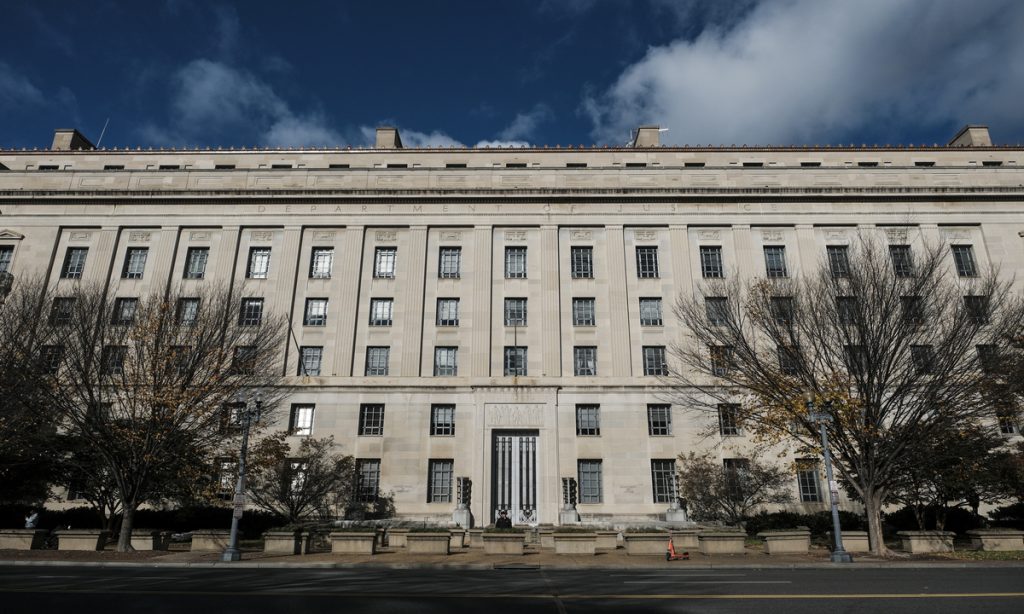The U.S. Department of Justice (DOJ) has issued a strong warning to state and local officials who refuse to cooperate with federal immigration directives. This move comes as part of the federal government’s intensified efforts to enforce immigration laws and challenge sanctuary city policies.
DOJ’s Stance on Compliance
In a recent memo, the DOJ emphasized that state and local governments must comply with lawful immigration-related commands. DOJ Deputy Attorney General Emil Bove stated, “Federal law prohibits state and local actors from resisting, obstructing, and otherwise failing to comply with lawful immigration-related commands and requests.” The DOJ also warned of potential investigations and prosecutions for non-compliance.
Local officials and law enforcement agencies, however, have raised concerns about these directives, questioning their practicality and ethical implications.
Local Law Enforcement Pushes Back
Pima County Sheriff Chris Nanos, based in Arizona, voiced his disagreement with the federal approach. While acknowledging the importance of addressing immigration issues, Nanos criticized the federal government’s heavy-handed tactics, calling them “politicized and low-hanging fruit.”
“As a local county sheriff, I don’t need Washington to tell me what to do,” Nanos said. He explained that while his department regularly collaborates with federal agencies like U.S. Customs and Border Protection (CBP) and Immigration and Customs Enforcement (ICE), some operations—such as large-scale deportation raids—are beyond their resources.
“Maybe it’s a mass deportation plan to raid a business or a church. They don’t need our assistance for that. They have the time and resources to handle those operations themselves,” Nanos added.
He also stated that if resisting such operations qualifies as non-compliance, he is prepared for a DOJ investigation.
State Leaders Speak Out
Arizona Gov. Katie Hobbs expressed her commitment to protecting her state’s residents from what she described as politicized federal actions. “As I did with the previous administration, I won’t be afraid to speak out when the federal government is getting it wrong,” Hobbs said. “I refuse to let political games get in the way of ensuring the safety and security of every Arizonan.”
Similarly, Arizona Attorney General Kris Mayes has been vocal in her criticism of the federal immigration crackdown. She highlighted potential pitfalls of mass deportation plans, saying, “The problem with mass deportations is that they inevitably ensnare people who are here legally.”
Mayes further condemned the idea of setting up detention centers, stating, “I will fight any attempts to establish what I believe are essentially concentration camps and family separation camps in Arizona.”

Legal and Ethical Concerns
The Pima County Attorney’s Office also weighed in on the DOJ’s memo, reiterating its commitment to following lawful court orders. However, they stressed that any unconstitutional directives will be challenged in court. “This is just another way to state the job of a prosecutor: to charge people who break the law, as appropriate,” the office said in a statement.
While local agencies have pledged to cooperate with federal authorities within legal bounds, they also emphasized the need for thoughtful, resource-efficient approaches to immigration enforcement.
What’s Next?
The DOJ’s warning has intensified the debate over the balance between federal authority and local autonomy. As state and local officials push back against what they see as overreach, the issue highlights broader concerns about the ethical and practical implications of federal immigration policies.
For now, the DOJ has not responded to inquiries regarding specific plans or actions tied to this memo. However, the tension between federal agencies and local governments is expected to grow as immigration remains a key issue in the national conversation.
Disclaimer—Our team has checked this article to ensure its accuracy and eliminate any misinformation. We are committed to providing clear and reliable information for our readers.




